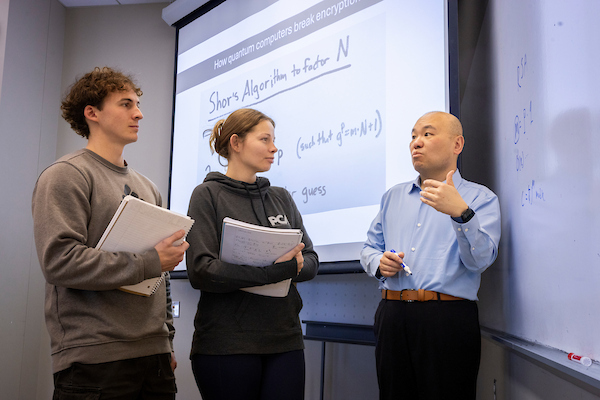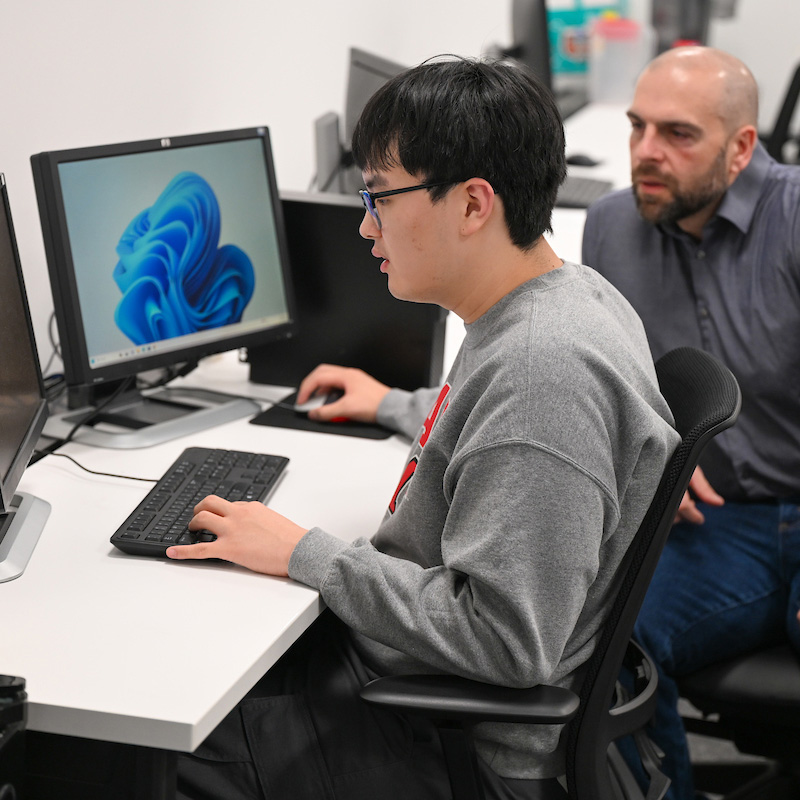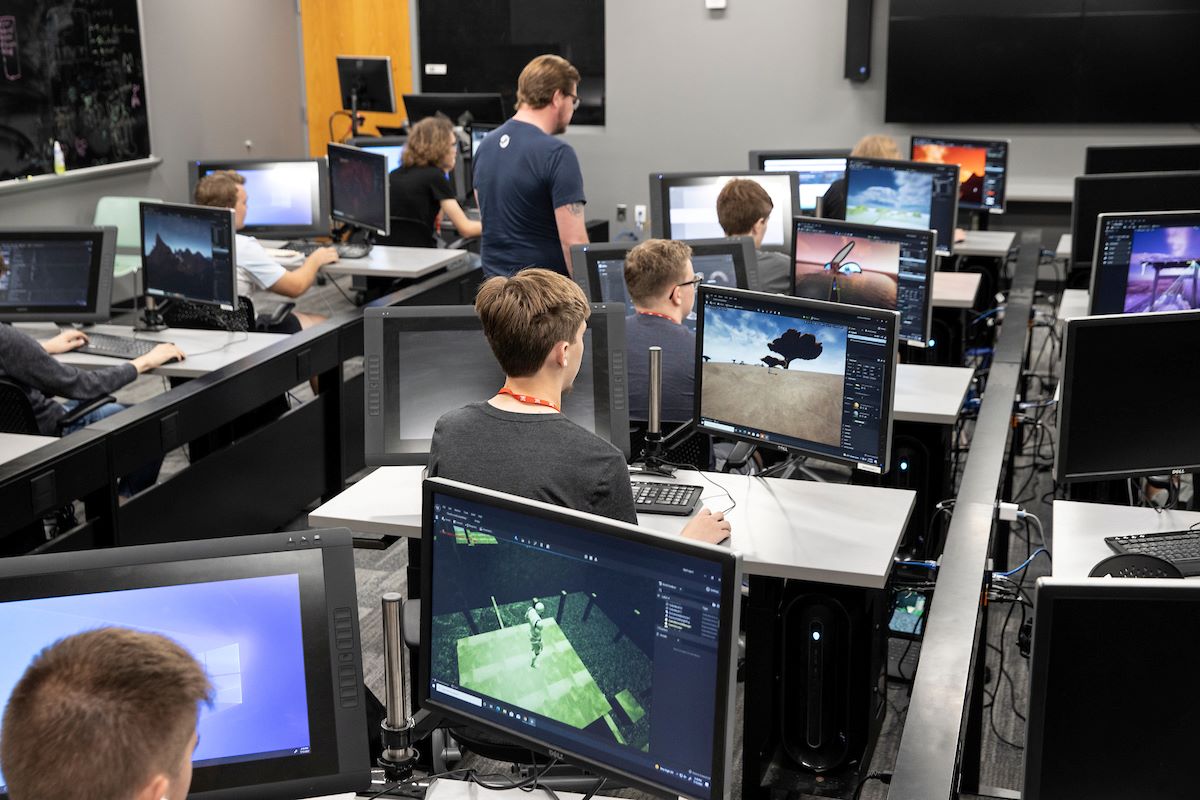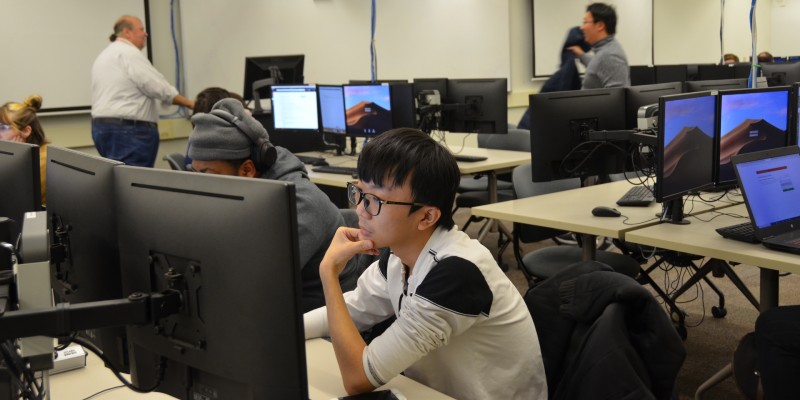Computer Science, B.S., B.A.
If you want to change the world and you like to think analytically and solve problems, enjoy mathematics, and are interested in working with computers and technology, consider a major in computer science. Innovations such as the Internet, smart phone apps, websites like Facebook, and online shopping all owe their foundations to developments in computer science. The computer science major at Miami provides you with a thorough understanding of the key principles and practices of computing as well as the mathematical and scientific principles that underpin them. You will study programming languages, algorithms, computer architecture, operating systems, and applications of computer science such as computer networks, computer security, computer games, and the ethical and social implications of computer technology.
Miami offers both a Bachelor of Arts and a Bachelor of Science degree.
The Bachelor of Science in Computer Science degree program is accredited by the Computing Accreditation Commission of ABET, under the commission’s General Criteria and Program Criteria for Computer Science and Similarly Named Computing Programs.
Learn About the B.S. and B.A. in Computer Science
B.S. Program Requirements
B.A. Program Requirements
Learning Outcomes
More Accreditation Information







